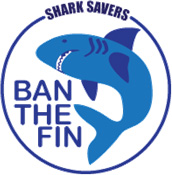
![]()
Home > Dive Discovery Group Trips
Dominica Sperm Whale Snorkel Encounter 2026!
January 3-9 2026 - 1st group
January 8-14 2026 - 2nd group
Escorted by: Cindi LaRaia

COST: $7,300 per person based on twin sharing.
** Single supplement: Superior or Garden rooms:
$1,200 Superior room; $1,000 Garden room.
The tour must have 4 people to make it go. We only take a max of 5 guests + tour leader. The government allows 3 people in the water at a time with the whales. * if they are calm and social, the next 3 can join. We will take turns who jumps first.
Join us on an extraordinary expedition to dive with sperm whales off the breathtaking Dominica Island in the Caribbean.
This is your chance to swim with this iconic predatory whale.
Dominica is a sperm whale sanctuary, and the animals are heavily protected.
With government permits, you will have the opportunity to snorkel alongside these giant whales in their natural habitat.
Price Includes:
6-Nights Lodging in Portsmouth: Nestled up the hill overlooking the beautiful Atlantic ocean, our hotel offers a seamless blend of comfort, relaxation, and seaview charm, with restaurant dining overlooking the sunset sea. Includes full breakfast & taxes, cost is based on 2 people sharing a room.
5 Days of Whale Encounters: You will spend 5 full days interacting with sperm whales. We average 6 hours days on the water.
Lunches at Sea: We will eat our lunches aboard our dive boat.
Government Permits: Official government permits that grant you the permission to swim with the sperm whales.
Price Excludes:
- Airfare
- Airport Transfers
- Dinners
- Crew and Hotel Gratuities
- Trip Insurance
- Alcoholic Beverages
- Meals on Travel Days

~~This time of year the BIG male bulls come in for mating! A very exciting time to be in the water and witness these giants! ~~
The deep waters off Dominica are where these whales live year-round.
Their primary food source is the giant squid, which there is an abundance of here off the island. This rich food source is what keeps the whales here year-round. The whales dive deep when they hunt for prey and can hold their breath for almost an hour. When the whales return to the surface to breathe, they will rest for upwards of ten minutes at a time. This resting period is when we have an opportunity to jump in and see the whales.
Sometimes the whales want nothing to do with us and will disappear quickly. These are wild encounters and there are never any guarantees that the whales will allow us near them. At other times they wait for us and check us out!
When the whales are done hunting for the day, they will gather into big family groups, to either rest or socialize. These are the encounters we are pursuing. If the whales are feeling playful, we can spend a lot of time with them. Finding social sperm whales is our goal and the dream encounters we are searching for. The best images and videos come from these experiences.

An excerpt from The SpermWhaleProject.org Based in Dominica.
Sperm whales are animals that form lifelong relationships, that babysit for each other, that have family traditions passed on by grandmothers, that learn a communal dialect, and have different ways of life that resemble our various cultures, some of which coexist in in multicultural societies. They live rich, complex and interesting lives that many of us would be surprised to learn about.
The sperm whales off Dominica are predominantly groups of females and their dependent calves living together in 'units'. In the Caribbean, these units are small, about 7 animals, and appear to be matrilineal, meaning it’s a female line of grandmothers, mothers, and their calves; so we often refer to them as families. Young males leave their families in their early teens to roam the open ocean, mostly alone, and may never see their families again. Units of females and their young regularly travel across ranges spanning several islands in the Antilles, but they appear to remain in the Caribbean as these families have never been identified in the neighboring waters in the Gulf of Mexico or the Sargasso Sea, where there is also active research on sperm whales.
We have identified over 20 different whale families which use the waters off Dominica, but there are about 10 that we see very regularly. We know they have been using these waters since at least 1984 based on our pictures, but likely much longer based on their life history. Sperm whales can live to be older then 70 years. Living that long means that you meet a lot of other whales over your lifetime and it turns out that families have preferences with each other. These social preferences endure across decades suggesting that individuals can remember each other across long separations.
We think this social recognition is mediated by distinct dialects of Morse code-like social calls termed ‘codas’. Each family has a slightly different coda repertoire, but also share coda types with the other units in the Caribbean. Shared repertoires delineate socially segregated ‘vocal clans’ – collections of units that share a similar coda dialect. Units which share the same dialect associate and spend time together and units that have different repertoires never gather together. In the Caribbean, the '1+1+3' coda type, which sounds like 'Click-pause-Click-pause-Click-Click-Click', is unique to the region, it has been produced in the same way for at least the last thirty years, and is made the same way by all the whales which use it. It’s like a marker of Caribbean nationality.
More interesting information from WhaleWatch New Zealand:
https://whalewatch.co.nz/our-nature/latest-news/how-do-sperm-whales-communicate/

For more information
Contact:
Dive Discovery
@
1 800 886-7321
(415) 444-5100
or
Request Info
